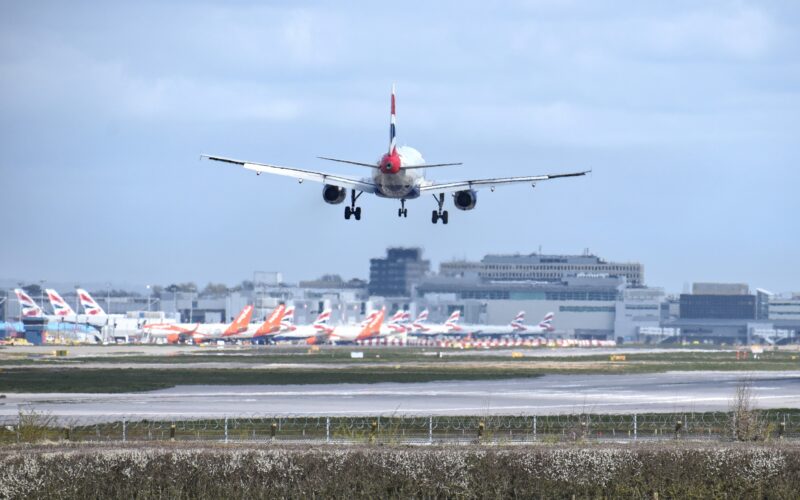NATS provided an update on the Air Traffic Control (ATC) issue affecting traffic flows from/to the United Kingdom (UK), saying that the issue has affected the organization’s ability to automate some of its processes.
“This morning’s technical issue is affecting our ability to automatically process flight plans,” NATS said in its previous update. Until the issue is resolved, flight plans are being input manually.
Because of this, the organization struggled to process them at the same volume and has applied traffic flow restrictions.
“Our technical experts are looking at all possible solutions to rectify this as quickly as possible,” NATS added.
Flightradar24.com data showed that arrivals at several UK airports, including London City (LCY) and Gatwick Airports (LGW), as well as Edinburgh Airport (EDI) and Belfast International Airport (BFS), are experiencing major disruptions. Meanwhile, departing flights from several more airports are facing long delays, while other flights were canceled, according to the flight tracking service’s airport disruption map data.
“Our priority is ensuring every flight in the UK remains safe and doing everything we can to minimise the impact,” NATS concluded in its latest update, adding that it is “sincerely sorry for the disruption this is causing”.
The company did not provide an estimate timeline for a fix.
Several airlines and airports have warned of potential flight disruptions while the UK’s ATC service tackles the technical problem, including British Airways, easyJet, Ryanair, and Loganair.
As of 3:15 PM local time (UTC +1), the issue was fixed, according to NATS’ latest update. “We are now working closely with airlines and airports to manage the flights affected as efficiently as possible,” the company added.
“Our engineers will be carefully monitoring the system’s performance as we return to normal operations.”
UPDATE August 28, 2023, 5:40 PM (UTC +3): The article was updated with a statement from NATS.

